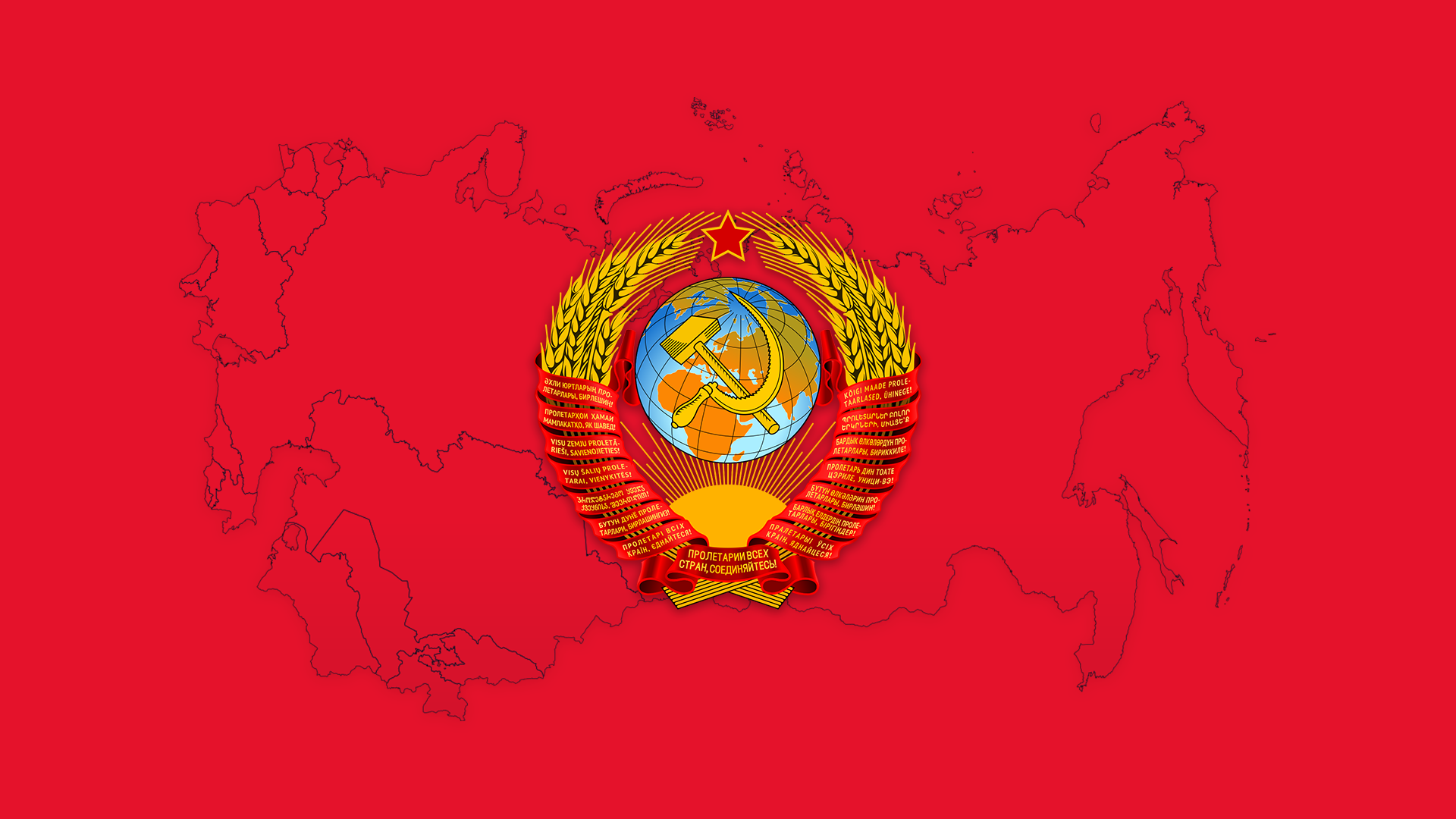i wonder who the puppet will be. Iraq had Ahmed Chalabi, Venezuela had Guaido, Georgia had Saakashvili, Ukraine has Zelensky.
Soviet Entropy
- 14 Posts
- 86 Comments

 0·10 months ago
0·10 months agoif conciousness is fundamentally a phenomenon of matter and energy then it fits in a materialist worldview.
statin that it’s immaterial is not materialist.but thank you for quoting scripture.

 0·10 months ago
0·10 months agoMaterialism is a philosophy where ultimately everything is matter and energy. I don’t know how you can think otherwise.
Conciousness can exist in a materialist worldview so long as it’s a phenomenon of matter and energy.Why have different views? Because there are different, equally valid ways of modelling the same thing. But some are more useful than others. You even highlight this in your next few sentences.
The reason it’s bad for propaganda is because no lay person understands what the fuck any of us are talking about when we use this philosophical language and quote long dead men from the 1800s.
You also do not understand what materialist dialectics are. You have a very idealist form of them. But that’s fine. It’s not worth arguing about. The idea that correct thought is needed for correct action is anti-marxist.

 0·10 months ago
0·10 months agoThere are many ways of modelling the same thing. Imagine you have a limited amount of money to fence in your yard.
An economist would say “you have a budget”. A cyberneticist or a linear programmer would say “you have a potentially binding constraint on your objective function”. A marxist might say “there is a contradiction between the size of your enclosure and the amount of fence you can buy”. A normal person would say “well there’s a tradeoff. I can fence in my whole yard or I can spend my money to go drinking on the weekends.”
All of these basically say the same thing. Marxists like to use dialectics which is a philosophical idea originally from idealist philosophers. When brought into the realm of materialist philosophy it gets called dialectical materialism.
Materialist philosophy is the idea that ultimately everything is matter and energy. Nowadays this gets called Physicalism sometimes. Idealist philosophy says that there are things which do exist but which are not material or energy. Ideas, gods, angels, conciousness, etc. Most people have a combination of these two ideas and so would accurately be called “Dualist” but internet leftists tend to use the term “Idealist”.
The simplest way to understand a “dialectic” is, I think, the following: At the start of the industrial revolution in England there were the old lords and a new wealthy business class. There was a conflict between them over the limited resources. There are only so many people to control, luxury goods to purchase, government positions to hold, etc. And these people have different interests. So a Marxist would say, when speaking in terms of dialectics, that “there is a contradiction between the aristocracy (landowners) and the bourgeoisie (business owners, capitalists)”.
Now obviously the relative strength of either side in this conflict can change. Maybe the business class start organizing and take more seats in parliament, maybe the lords begin raising their own knights and armies again, etc. A marxist would say that this change is actually not unusual but a key part of the system. They say that modelling things using dialectics and materialist philosophy means we can understand how things change and not be so surprised when they do. And when something does change they might say “the dialectic is in motion” or “the contradictions are sharpening”.
Ultimately the entire thing is fancy language from the 1800s that should probably be replaced because it’s alienating and bad for propaganda. “Conflict”, “tradeoff”, and “change” are much more sensible in 21st century English than “contradiction”, “dialectic”, and “motion”.

 0·10 months ago
0·10 months agoThe first question is should you bother.
I am very inclined to believe the answer is no. China has little bearing on the actions one can take to strengthen the working class in the US.
Why run interception for China when it takes time away from unioning, organizing, etc.
 0·10 months ago
0·10 months agoThat is not what it says.
The insurgent party on the left and right, the Alternative for Germany (17-19 percent) is anti-EU and would never support joint borrowing.
 0·10 months ago
0·10 months agoArticle calls AfD left wing. What the fuck is this website.

 0·10 months ago
0·10 months agoUnited $$nake$$ of Amerikkka

 0·10 months ago
0·10 months agoGuy who argues mumble rap is stupid because you can’t even understand what they’re saying while listening to Jack Stauber on spotify.

 0·10 months ago
0·10 months agoThe sad fact for Marxists in the west is that the Anarchists are more organized and do more praxis these days.
I find it very annoying when my fellow comrades respond to the actions taken by Anarchists or non-Marxists by simply belittling them.
“occupy did nothing. chaz was doomed from the start. etc.”If we think we are supposed to be the vanguard, the most proactive guardians and forward pushers of the working class’s power, we need to start doing shit. Because right now we’re a laughing stock of sit-around bookreaders arguing theology.
Our main attack against all other forms of socialism are that they’ve never won and secured a worker state. Well right now the Marxists in the west haven’t even started.
Marxists who do nothing but post will come up with some horrible names to call me which are just new fancier versions of “heretic” but as it stands, (on average) even the least read anarchist in Food Not Bombs has done more to advance worker power than the most well read “Marxist” in a typical org.
The clearest example I can think of:
It wasNew York CityAnarchists working as part of the Direct Action Network who secured the massive abolition of Third World debt owed to the IMF. And it is not exaggeration to say they also almost suceeded in abolishing the IMF entirely. Despite the most vocal opposition to the IMF coming from us Marxists, it seems right now we are all talk. We must improve.EDIT: I misremembered: DAN was most active in NYC but the anti-IMF successes were across the US not just NYC.

 0·10 months ago
0·10 months agoOP, your question is touching on a great discussion between how much of our social order is arbitrary and how much is determined by material conditions (for example: having visited Cuba, a thoroughly socialist state, I witnessed racism to about the same level as would exist in progressive communities in the US despite no capitalist relations to produce it.). The dialectic between the base and the superstructure, as a Marxist might put it.
I didn’t want to muddy up my comment with a long quote, but I think this one has some nice insights.
But if reading isn’t one’s forte then the tl;dr is from Marx: “Men make their own history, but they do not make it as they please”
These are from a book called “The Utopia of Rules: On Technology, Stupidity, and the Secret Joys of Bureaucracy”
From a left perspective, then, the hidden reality of human life is the fact that the world doesn’t just happen. It isn’t a natural fact, even though we tend to treat it as if it is—it exists because we all collectively produce it. We imagine things we’d like and then we bring them into being. But the moment you think about it in these terms, it’s obvious that something has gone terribly wrong. Since who, if they could simply imagine any world that they liked and then bring it into being, would create a world like this one?
Perhaps the leftist sensibility was expressed in its purest form in the words of Marxist philosopher John Holloway, who once wanted to title a book, “Stop Making Capitalism.” . . . This is the ultimate revolutionary question: what are the conditions that would have to exist to enable us to do this—to just wake up and imagine and produce something else?
To this emphasis on forces of creativity and production, the Right tends to reply that revolutionaries systematically neglect the social and historical importance of the “means of destruction”: states, armies, executioners, barbarian invasions, criminals, unruly mobs, and so on. Pretending such things are not there, or can simply be wished away, they argue, has the result of ensuring that left-wing regimes will in fact create far more death and destruction than those that have the wisdom to take a more “realistic” approach.
Elements of the Right dabbled with the artistic ideal, and twentieth-century Marxist regimes often embraced essentially right-wing theories of power . . . in their obsession with jailing poets and playwrights whose work they considered threatening, they evinced a profound faith in the power of art and creativity to change the world—those running capitalist regimes rarely bothered, convinced that if they kept a firm hand on the means of productions (and, of course, the army and police), the rest would take care of itself.

 0·10 months ago
0·10 months agoThe question every leftist has been trying to answer for the past 200 years is this:
“What are the conditions that would let us we wake up tomorrow and not do capitalism?”All political theory on praxis has been trying to answer this question.
If everyone were class concious, the answer would be simple: just don’t.

 0·10 months ago
0·10 months agoi will definitely check it out.
the language of the older editions is borderline outdated. it’s so difficult to read when marx wrote it to be accessible to his native german audience. not to mentio the original translations had typos in the formulas for capital.
also, queue all the doctrinists who treat every word of marx and lenin the same way the fucking evangelicals treat the king james.

 0·10 months ago
0·10 months agoai art is art because people are mad about it.
jokes aside, i think that machine art is going to basically just replace clip art and the like. it’s like what happened to pottery. there are still artisinal potters (i love handmade pottery and the craft itself) but for everyday dinner plates you don’t seek the connection and craftsmanship. you just need a plate.
some art has use-value as decoration (easily replaced with machines) and other art is about personal, emotional, or political communication (even if it could be replaced, it wouldn’t be.)
it’s literally a broken chain.
Literally a broken chain.
You could make a movie called ‘The Folly of the Phallus’ where a man shoots himself in the foot everytime he feels emotions and people would idolize the main characters and complain that the message wasn’t clear enough.

 0·10 months ago
0·10 months agoThe evidence we have is that Swiss banks are likely key in how sanctions against Russia are being avoided.
https://www.bloomberg.com/news/articles/2022-09-20/swiss-imports-of-russian-gold-climb-to-highest-since-april-2020

 0·10 months ago
0·10 months agoit depends on what you mean by BRICS, the EU, and imperialism.
Usually what people are referring to is the breakdown of something called Dollar Recycling and usually this gets lumped in with the specific way the US ruling class impose their economic will over the rest of the world.
Often people start with a history lesson beginning just after WWII, and I can link a video if you’d be interested, but in short:
- The US Dollar is used by all countries to settle trade. When countries buy and sell oil, they do it in US Dollars. When Argentina sells grain to Brazil, they do it using US Dollars.
spoiler
sidenote: It’s not actually “Argentina” or “Brazil” doing this. The businesses in these countries put in purchase requests for US Dollars at the Chicago Clearing House or some other bank, and then they pay a fee to exchange their currency for US Dollars, and then trade with each other, and then pay the bank to exchange it back.
sidenote 2: Sometimes these businesses go to their own country’s central banks to exchange the money so the central bank acts as a middle man of sorts..
-
If a business in the US wants to buy something from abroad, it can just do so without having to worry about where to get US Dollars from since it always uses US Dollars anyway. When French businesses, for example, wants to buy something from abroad, they has to first sell something to get the US Dollars they needs (often to the US) or they have to use a US bank or clearing house to exchange Euros for US Dollars.
-
Chinese businesses is becoming the largest trading partners of many countries, not the US ones anymore. So many countries can get US Dollars without having to sell to US businesses.
-
What is likely going to happen is that the BRICS countries (probably better referred to simply as the China Trading Block since all of the other countries are in a subservient role) will make their own crypto currency similar to Tether which is backed by US Dollars that China has in abundance.
-
This means that there is now a competing currency to the US Dollar but which can easily be exchanged for US Dollars without needing to use any US Banks at all. Thus the power the US businesses have will be weakened.

 0·10 months ago
0·10 months agoThat’s about what I expected. It’s the same in the west. Very few people are ardent neoliberals but many just support their team (if they are politically active at all).



i love how the entire comment section is people trying to argue whether something is wholesale good or wholesale bad. i swear to god you people make me embarassed to call myself a communist. for the political ideology that understands such a thing as “critical support” and that “the point is to change it”, y’all spend all your time pontificating about the true quintessence of every fucking thing under the sun.
consider this me applying the lessons we learned in “criticism and self criticism” because holy fuck y’all need to keep that shit in philosophy class.